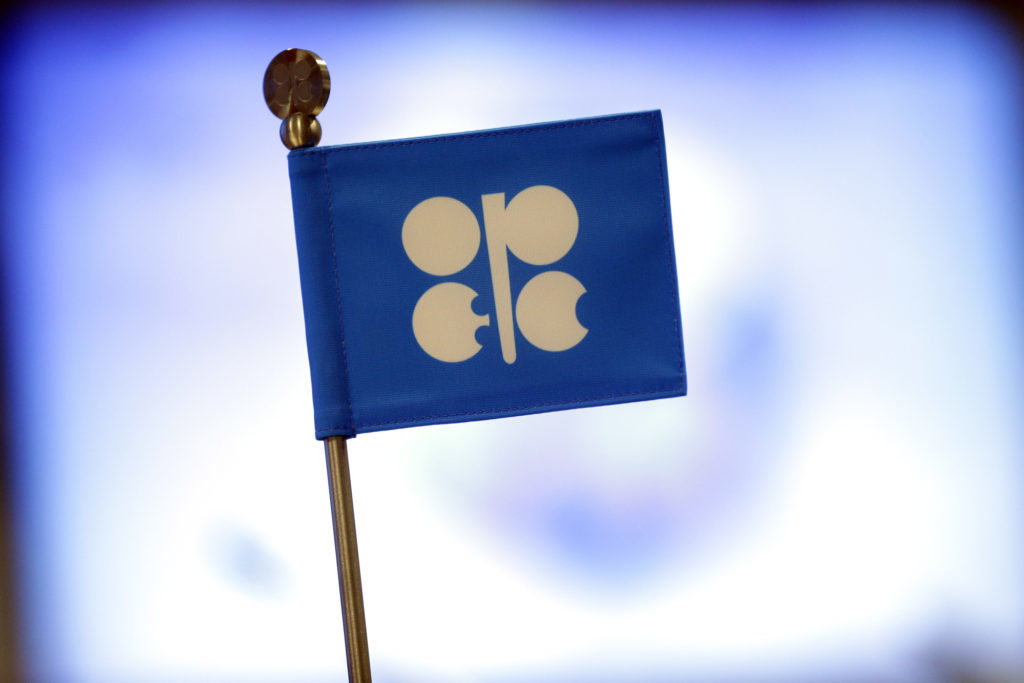
OPEC+ has made headway toward a deal on oil-output cuts, the first sign of progress after failed talks earlier this week.
After days of direct negotiations between the group’s heavyweights — Russia, Saudi Arabia and the United Arab Emirates — details of any potential compromise still weren’t immediately clear.
It was too early to say whether the progress would translate into a final deal, delegates said, asking not to be named because the talks were private.
Oil rallied on the news, rising 2.4% to $45.63 a barrel at 11:48 a.m. in New York.
The Organization of Petroleum Exporting Countries and its allies need to hash out an agreement on supply levels next year.
Output is meant to increase by 1.9 million barrels a day from January, but recent talks have focused on retaining current production limits for another three months, although other options were also discussed. The negotiations ran into obstacles amid a clash between Saudi Arabia and the UAE.
The Russian government, after internal talks with its own oil companies, has settled on its position, said a person familiar with the discussions. The country is ready to agree to a gradual tapering of production cuts within the first quarter of 2021, the person said.
OPEC+ is due to meet on Thursday, after a two-day delay to give countries more time to reach a consensus.
Fractious Talks
OPEC+ rescued the oil market this year from an unprecedented slump, slashing production as the pandemic crushed demand. While crude has surged in recent weeks, a new wave of virus infections is hitting the global economy. Some members believe demand is still too fragile to absorb additional barrels.
Fractious talks earlier this week raised the specter of the deal falling apart — that would sink prices and batter an industry that spans from tiny nations like Gabon to corporate giants such as Exxon Mobil Corp.
The intensity of the fight between Saudi Arabia and the UAE took OPEC-watchers by surprise, as the pair have long been staunch allies. But Abu Dhabi has been pursuing a more independent oil policy and wants to pump more.
Over the summer, Abu Dhabi’s impatience led it to cast aside its usual obedience to cartel discipline, and pump more crude than its quota allowed. The Saudis were furious, and summoned UAE Energy Minister Suhail Al-Mazrouei to Riyadh for a public dressing down.
While the UAE subsequently atoned, people familiar with its oil policy say Abu Dhabi believes the current quota is unfair, and is keen to make the most of massive investments in production capacity. It’s also planning a new regional price benchmark based around its Murban crude variety, which needs the kind of volumes that clash with production limits.
If a deal is eventually crafted, it will be scrutinized for its ability to keep the coalition together and disciplined. Tensions are expected to reemerge next year.